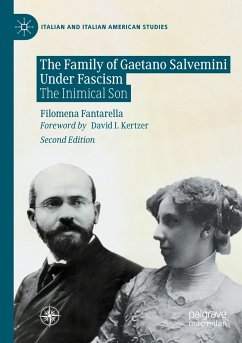
The Second World War and the Rise of Mass Nationalism in Brazil
Class, Race and Citizenship
Versandkostenfrei!
Versandfertig in 6-10 Tagen
106,99 €
inkl. MwSt.
Weitere Ausgaben:

PAYBACK Punkte
53 °P sammeln!
This book reexamines the socioeconomic and political transformation that occurred in Brazil during the 1940s as a result of the Second World War. Integrating social and political history, the author explores the adoption of new policies around state-sponsored industrialisation, the consolidation of Brazilian labour law institutions, and the expanded influence of 'racial democracy' in the country's domestic and foreign policy. The book argues that the nature of the Brazilian state and its definitions of citizenship were redefined both from 'the top' - as a result of Brazil's integration in the ...
This book reexamines the socioeconomic and political transformation that occurred in Brazil during the 1940s as a result of the Second World War. Integrating social and political history, the author explores the adoption of new policies around state-sponsored industrialisation, the consolidation of Brazilian labour law institutions, and the expanded influence of 'racial democracy' in the country's domestic and foreign policy. The book argues that the nature of the Brazilian state and its definitions of citizenship were redefined both from 'the top' - as a result of Brazil's integration in the new international order following the War - and 'from below' - as antifascism and mass nationalism opened new spaces for subaltern agency. Challenging traditional narratives on Brazil's transition from the Estado Novo dictatorship of Getúlio Vargas to a postwar democratic experience, this book highlights the extent to which political developments were shaped by key global processes and foreign relations with the USA. The book also focuses on the 'bottom-up' forces and actors that brought about change in Brazil, emphasising the role of workers, protestors, and popular actors in shaping history. Breaking new ground in Brazilian historiography, this book makes a significant contribution to studies of populism and democratisation in Latin America.














